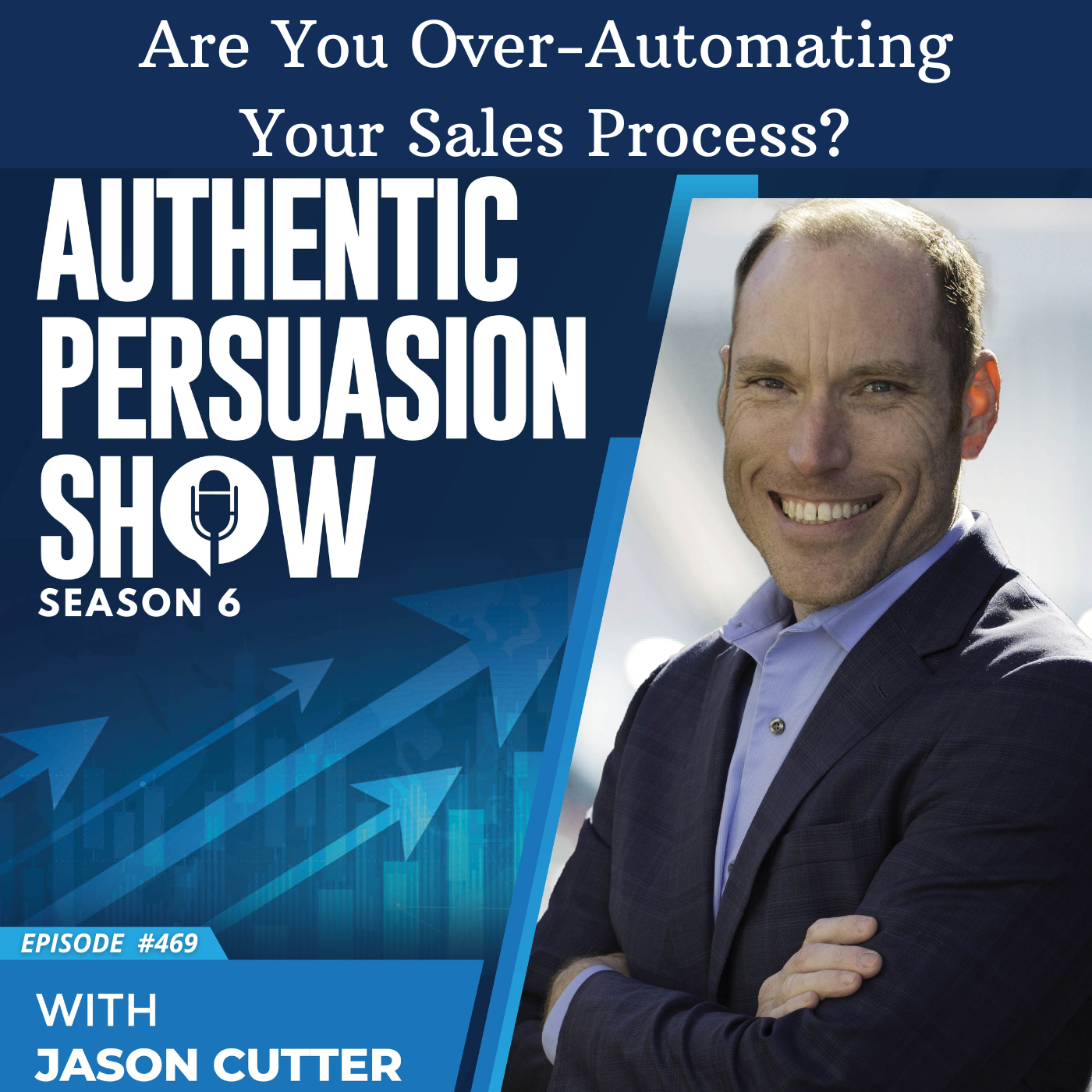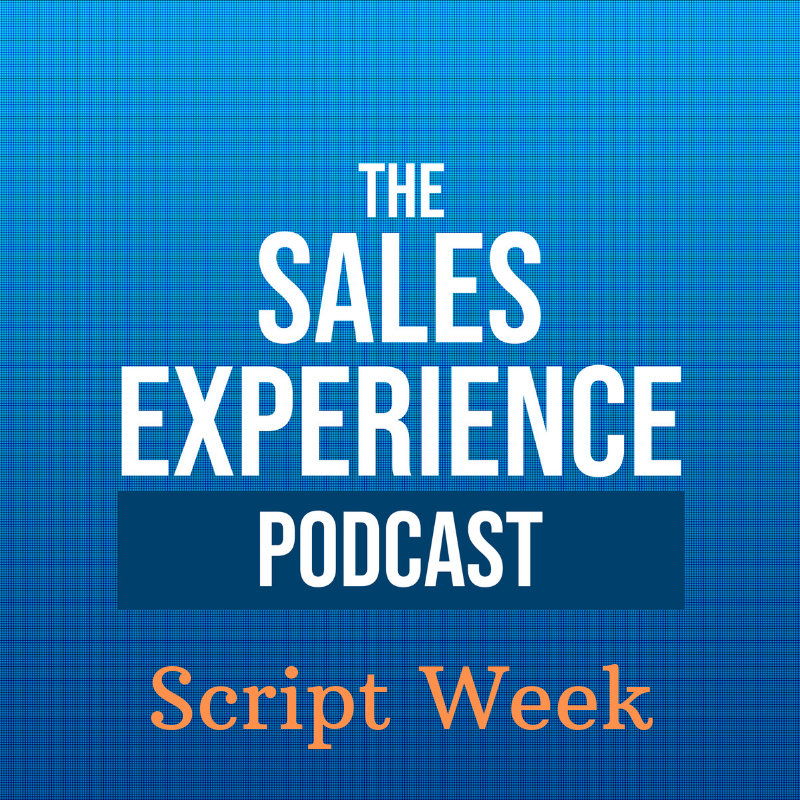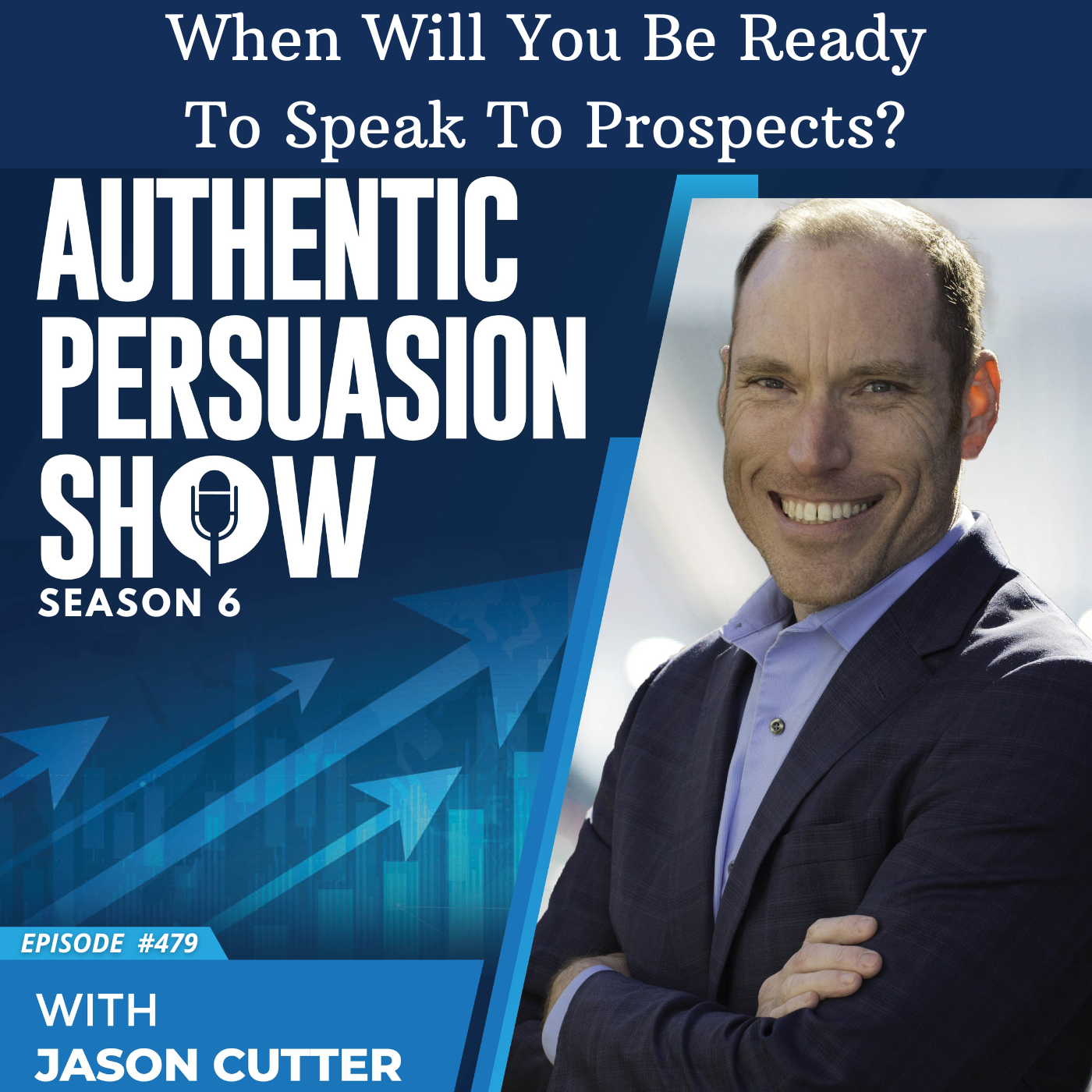Episode Transcript
Jason: Welcome back to the Sales Experience Podcast. Welcome to part two of my conversation with Daryl Prail from Vanilla Soft. This is a super powerful conversation with a new CRO and everything that he's been going through and learning and helping his team with. Lots of valuable lessons. If you didn't check it out, Make sure to listen to part one.
It's going to be a four part series. So here you go. Part two, I will see you at the end.
Darryl: If marketing girl does this, will you do this? And sales girl says you're damn straight. I will. Boom. Let's go. Let's go do it. So that's what I liked about, and that's why I took it was the chance to go really fast and make a difference.
Jason: And I can totally relate to, because in those times where I've been in charge of sales and marketing, that lack of friction is so huge, right? It's not Hey. Sales needs more of this. So let's go talk to the marketing side. No, it's here's the mandate from high above filtering down and then let's do it together.
So was there a mandate if you want to use that word or stepping into the CRO role or for CROs out there, like what is the mandate? What is the mission?
Darryl: Yeah, that's straightforward. So effectively, I'm now, if you will, the number two person in the company, second only to the CEO. Because I own all of the revenue.
I also own the largest spend, right? So I have all the staffing salaries of all the marketing and the salespeople. Salespeople typically aren't the most affordable because they're good. They're worth their weight in gold. Plus, I have all the program budget spend that marketers do for their campaigns, whether it be pay per click or shows or what have you.
There's a lot of money that I've got to spend. Mandate number one is to hit quota. We have targets. We've got to hit those targets. Hit or exceed those targets. Mandate number two is you have to demonstrate a positive ROI in the money you spend on the marketing side. And you could argue that some of my channels We're a positive when I was just emo were positive and other channels weren't and I could sit back and say The reason they weren't a positive our wives because sales dropped the ball, right?
There's the classic sales and marketing finger point So now that's gone So I have to make sure all of my channels are actually generating positive results and if they're not I better have a damn good answer or I better be adjusted on the fly or that may mean Implementing processes on the sales side of support marketing is doing either way.
I have that control. So it's truly hit the number. So a positive ROI. And this is actually maybe the most significant one. Demonstrate predictable scale. Okay. Let that set in. That means, okay, you've got, you've overhauled the team. You've put in the structure, the processes, everything else you want, whatever it might be.
You've done it there. Your stamp is on it as zero. If I doubled your sales team or if I doubled your marketing budget or what have you Can you predictably scale accordingly based on that, doubling of investment because you put in a process to do that. And why does that matter? You're saying to yourself, because nothing's linear folks, and you're right.
Nothing truly is linear, but you should be able to be predictably able to scale. You have processes, you have data, you have metrics. Why it matters is this. If we decide at that point in time, okay, we've overhauled the organization. Now is the time to go and invest. For growth hyper growth, okay I can go back to my existing investors and ask for more money I could go out to the street and ask for more money.
I mean look at gong just raised 200 million dollars They raised 300 million in the last 18 months and they didn't need the 200 million dollars And they did the deal in about two weeks time, the investors went to Gong leadership and he asked the CEO, why did you take 200 million? We didn't need it because because we want to scale and the investors knew that we had gotten to a point that we were predictable or we could rinse and repeat and go.
So once you know that you can scale, then the market opportunity available to you is massive, which now means your valuations go up. Gong is now a valuation of almost 3 billion. Before that, Market Darling was outreached at just over a billion. So Gong has raised comparable funds, a little bit more than outreached.
They have almost a 3x valuation, all because They can scale. So those are my mandates. Hit the number, be predictable, and scale.
Jason: One thing I've seen is that sales people worry about only being able to win if they use manipulation, tricks, tactics, and hard closes. So they end up struggling to close deals, make their quota, Or earn the kind of money that they want to make.
If this sounds like your current situation, or maybe you want to make more money in sales without feeling like you're selling, then my upcoming book called Selling with Authentic Persuasion will help. In it, I'm going to take you on a journey to transform from order taker to quota breaker. If you're ready to become an authentic persuader, crush your goals.
And create success in your sales career. Then go to Jason cutter. com again. That's Jason cutter. com and pre order the book today. When you took over this role without naming names, what was the biggest challenge that you faced? Or what was like the hot topics,
Darryl: the hot issues, but I can tell you the hot issues.
So I spent the first 30 days. I had a 30, 60, 90 day plan. And it was pretty straightforward. 30 day, first 30 was situation assessment, culminating in a decision. In other words, okay, what do we do? Next 30 days is systems and process overhaul. Now that we know what we're going to do, we got to update the processes and the systems to support what we're doing.
And the last 30 days is, let's make sure everybody's trained and ramped in the processes so it's repeatable the scale aspect comes in. You're hitting on, if I'm vulnerable for a moment, The first week was the most stressful of my life. I've had a lot of stress in my life. And it was the most stressful because it's like, where do you start?
And I literally interviewed every single new person on my team. I acquired the whole sales org. So whether you're an SDR, you're a solution engineer, you're an AE. I spent 45 to 90 minutes with every single one of them. And I put together a standard questionnaire. So it's 17 questions. And 17 questions really had three primary areas.
One is, help me understand who you are as a person. Two is, help me understand a little bit of what you know about what you're selling. And the third is, help me understand what you know about the assets available to you to be successful. Now they didn't know that, but I just, that's what it was. And what it was for me, and why was it so stressful, was because I talked from sunrise to well beyond sunset.
You're always on your game because you're talking to all these people who are scared for their jobs. And they're looking to you for reassurance because they know that there's been a management transition. And that you hold their destiny in your hands. You're trying to reassure them, but you're also a detective.
You're Columbo. And you're trying to look for all those various little aspects that you don't know about. Look for, what are the telltale signs that, oh, there's a problem here, oh, there's a problem there. And the pressure's on you to hit a deadline. And then even when you discover it, then your next process is, okay, so what do I do?
So this is what I discovered. I don't mind sharing it. What I discovered, and I knew this somewhat, so some of this was affirmation, some of this was new information, was that we were an inbound centric organization. Meaning we largely relied upon sale on marketing that generates so much activity and lead flow that our SDRs could qualify it, pass it off to our account executive, and then they would close the business.
You could argue at that point in time, were the account executives truly account executives or were they order takers? Because it was such an inbound process. And if I look at my average deal size and I look at how we missed some of our targets, and we do very well. Our numbers are great, but our targets were not being hit.
There's a difference. So what I realized was that's the problem and I would look at deals and I would listen to recordings and I would sit in the car. I sat in on so many calls and it was killing me inside because I wanted to jump into all these calls. And sometimes I did just take over the call because I was like, Oh my God, we're going to lose this opportunity.
Are you stupid? And can't you see this? This is, I'm the CMO and I know the stuff to ask. So you realize that they didn't know how to sell. They didn't understand our product. I'll give you an example. I mentioned that of those 17 questions I asked every one of them. The last Third was really about content.
So in this section, I went to every one of them and I said, I want to ask you some silly questions and you can pass. You don't have to answer these questions. You can just say pass. They're like, okay, great. So what is your favorite blog post that we've written since you've been here that you just think is awesome?
Silence. Pass. All right, what is your favorite episode of the Inside Sales Show? Which is the podcast that we do with the who's who of the world. Like really, the who's who of the sales world. What's your favorite episode? Why? Pass. What's your favorite webinar? And we do like webinars up the wazoo.
What's your favorite webinar and why? Pass. Okay, so here, you're on the phone with the prospect and the prospect says, yeah, I've got this problem. And you say isn't that weird? Customer ABC also had that problem. Let me tell you a story about that. I'm like, yeah, I said, okay, you pick any customer story.
You want to give it to me. Tell me your customer story. And I literally had one who could tell me a killer story with facts and vigors and process. The rest mostly just did something like this. We have this customer, they had a problem, they installed us, life is good. And that was pretty much it. And I'm embarrassed to say that, but there you go.
So what I took away from all of this in a nutshell was the following. Our reps. We're all talented individuals, but they were lacking the sales skills necessary. They did not know the resources they had available to them at the company to move them through the deals or to open the scope or to appeal to more people within a deal, within an account.
And they didn't understand our product. One third of the questions I was asking was product related. What I got out of that was they did not know the product at all, other than boilerplate messaging. Boom. Okay. I know our problem. And so what we did out of all that getting to the punchline. was we overhauled everything.
I completely switched the team to an account based model, which means I organized them by verticals. We were previously, our ratio of SDR to AEs was two to one, so we had two SDRs for every one AE. The industry average is the opposite, it's one SDR to every two AE, so I flipped that ratio around. Now we have one SDR for every two AEs.
I actually created a position for additional solution engineers because our reps were on the phone often doing fundamental customer success style work is trying to improve the concept of these customers to close them, which means they're not selling other opportunities. If I had more solution engineers, I could free them up for that.
So I hired more solution engineers. I actually created a sales enablement organization, a team of sales enablement people. Led by a rockstar within the company. And their whole job is to train and mentor the sales reps continuously. I created a revenue ops team, but all they do is none of they manage our tech stack, make sure it works seamlessly.
They're like mathematician data scientists. So we understand every data now in the conversion points, because I had to tell the reps when I'm coming to you and saying you suck here or you don't suck there or whatever, I need to do it with data. So now I have the data and I can tell you exactly how it worked for.
Forming at every stage of the buyer cycle relative to industry averages and relative to best in class for rep in by every vertical. So now I know that. So now I know where we're underperforming, which was another way that I figured out quickly that we lack in product knowledge and we were at lacking sales skills.
So you can see, oh, look at, we're doing great at the top here, and then our close rate sucks, so we don't know how to close. That's a sales skill issue. So we did all of that. And then by going to ABM, the ABM model is the class that we're going to have. Every rep's going to have five large accounts. These are ballpark numbers.
Forty named accounts, in other words, 500 industry segments. The reps will deal with the 40 and the five. Then marketing will market off 545. Those 500 will obviously get some traction through the marketing and retargeting and then pay per click. And they'll bubble through, become MQL, that'll go to the SDR.
The SDR will work it and pass it off to the AD. So now we have a whole ABM model going on. I'm being vested in. ABM software. So we put it, we bought Terminus. And then we bought salesforce. com. So we had a single source of record truth across the whole system. And all the AEs are using salesforce. com before they just use vanilla soft.
Jason: That's it for part two. Again, if you want to find Daryl, best place, darylprayl. com. You can also Google him. You can find him on LinkedIn. It's P R A I L L. He is all over the place. Lots of great value. He's always willing to talk to anybody. And that's it for this. I will see you tomorrow for part three.
That's it for another episode of the sales experience podcast. Thank you so much for listening. If you find yourself on iTunes, can you leave the show a rating and a review? It helps other sales people and sales leaders find the show and please subscribe to the show and share episodes you find valuable with anyone you know in sales.
Help me on my mission of changing the way. Sales is done. And if you're ready to work together, go to Jason cutter. com. Again, that's Jason cutter. com to find out how I can help you or your company creates scalable sales success. I will see you on the next sales experience podcast episode, and keep in mind that everything in life is sales and people will remember the experience you gave them.
![[E272] Tales of a new CRO, with Darryl Praill (Part 2)](https://episodes.castos.com/salesexperiencepodcast/images/Season-3-TSEP-Covers.png)


